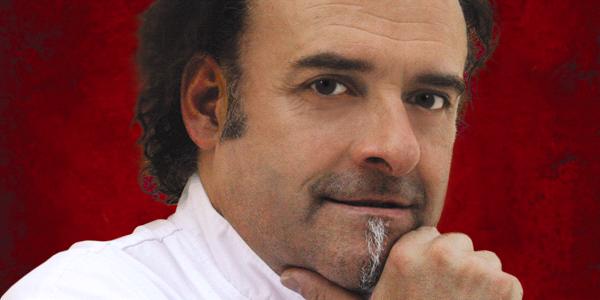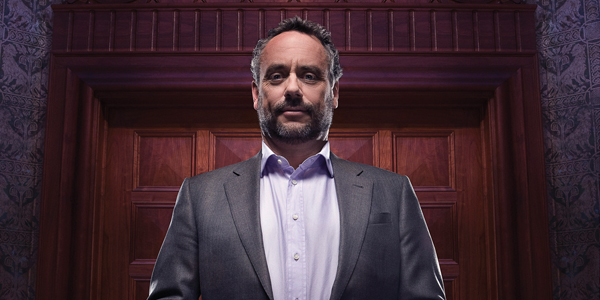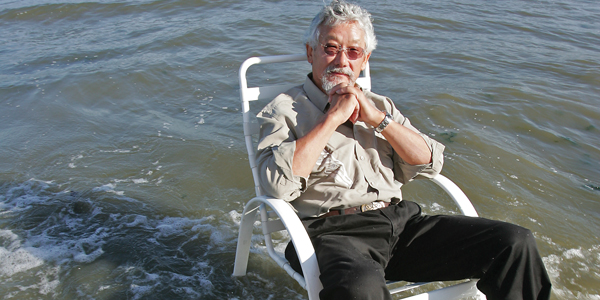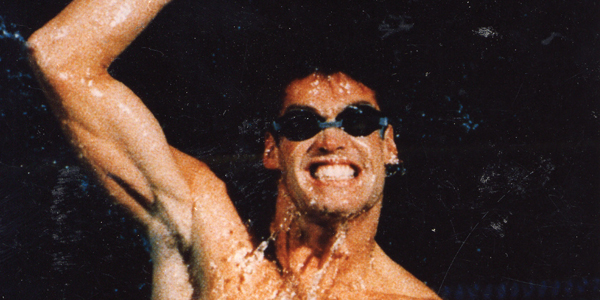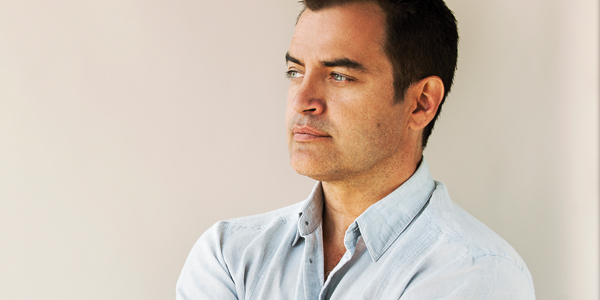Jean-Robert de Cavel was born in Roubaix, France. After serving his culinary apprenticeship in Lille, France, he worked under Master Chef Jo Rostang in the French Riviera and the British West Indies and was named Executive Chef at La Regence restaurant at the Hotel Plaza Athenee in New York City. In 1993, after eight years in New York, Jean-Robert moved to Cincinnati to serve as Chef de Cuisine at the Maisonette, at the time the longest-running Mobil five-star restaurant in the United States. Under his tenure the Maisonette earned eight additional five-star Mobil ratings.
In 2001, four years before it closed, Jean-Robert left the Maisonette and opened his own restaurant, Jean-Robert at Pigall’s, which was subsequently named by Conde Nast Traveler as one of the Top 75 new restaurants in the world. It was associated with Relais & Chateaux, one of only thirteen restaurants in the U.S. and the only Relais Gourmand restaurant in the Tri-State. In 2002, Jean-Robert was awarded the Medal of the Chevalier de l’Ordre du Merite (one of France’s highest civilian honours) by the Consul General of France. In 2007, Jean-Robert earned the title of Maitre Cuisinier de France, French Master Chef.
But there is much more to Jean-Robert than the awards on his wall or the honours he’s earned. He’s faced tremendous adversity, losing his first-born child, Tatiana, in 2002 and then walking away from the restaurant he built with her spirit in mind. Jean-Robert epitomizes tenacity, resilience, and integrity. He’s created beauty out of tragedy, founding Seven Days for SIDS, raising over $500,000 for families who have lost their children to SIDS. And he’s managed to fan his entrepreneurial spirit back into a vibrant flame, opening Jean-Robert’s Table in 2010. His five star cuisine can be enjoyed at this elegant, casual restaurant in Cincinnati, Ohio.
When did you become passionate about food? Who initially introduced you to it?
Well, I’m from a family of five kids; you know, typical family from France, from the 60s and 70s; so my mom was at home, cooking for every one of us and I was always around the kitchen with my mom and my brothers and sisters. I always enjoyed helping my mom and helping my dad on the weekends – I used to love to cook on Sundays – so I was always involved with them. Like every parent, I think the biggest challenge when you have children and when they become teenagers, is to help identify what they want to do in life. For me, it was a challenge my parents didn’t have because I’ve always known exactly what I’ve wanted to do, I’ve always wanted to be in the food business and I’ve always wanted to cook. I did an apprenticeship when I was sixteen-years-old, it was something you cannot do in France. I graduated two years later from culinary school, although in the apprenticeship program. I went to work for half of my time and I went to culinary school the other half of the time and definitely that type of program was very popular in Europe. It would teach you to understand the business before you graduated from a technical college. I’ve never looked back because I’ve always really enjoyed what I do.
You enjoy what you do, but can you describe what that relationship is like? When you make food for other people…
(Interrupting) It’s interesting when we cook, and it’s something I try to make sure we don’t forget, when we’re in the kitchen – we’re cooking for people, I mean, we’re at the service of the customer. And I think, of course we can create or we can have some ideas of creating dishes but I think the main relationship, the mental thing, is really truly doing something to please the person who is going to eat it. There is a connection food can give to people. This business is a way for me to enjoy making people happy; I don’t know if I really knew that when I started the business.
It’s such a beautiful thing to watch the love affair that great chefs have with food – knowing what you can create and then presenting it to someone who then gets to enjoy it. How would you describe that relationship?
You know, sometimes as a chef, I’m not the one to put what I create in front of the customer. And there’s something magical about the customer ordering something and seeing something presented differently, or having a different flavor than they expected it to have. A direct connection is made between the person creating the food and the person enjoying it, and they may never meet!
Just because you can make a great tart doesn’t make you a great businessman. Yet somehow, restaurant after restaurant, you’ve managed to be an amazing chef but also understand the business side in order for them to be successful. What has been the secret to your success?
I’ve always believed there are two different worlds. I think there’s the world where the person is made to be a businessman and he knows what his goals are – he will have a goal in front of him and think, whatever I need to do to reach this goal, I will do it (without thinking, you know, if he’s right or not right, and without thinking if he’s even going to be able to do it). He’s just going to go for it.
And I think many have the other side. They’re just passionate about what they do and passionate about every little detail that not everybody sees and, day by day, they’re able to finish and achieve. Both businessmen can achieve the same goal. It’s truly my passion and my understanding of what I do, and respecting others, and trying to be the best I can be to make life worth it.
Life is beautiful in general, regardless of what happens. One of my goals in life is to be able to one day turn around and say, “Well, I did the best I could, and I did what I wanted to do, and I hope I touched people.” That’s the way I look at it.
I surround myself with people I care for; surround myself with people who I want to work with as a team, following my passion and following what I have inside more than just following the road to get there. It’s the success we build day by day. And that’s kind of the way I see it – how I became successful.
You decided to move from France to New York, and now you’re in Cincinnati, and I’m wondering, why Cincinnati? (laughter)
You know, it was a love affair. I’m married to a German lady. We met in New York City, she came with me to Cincinnati and then we got married. Sometimes you end up in an area because of someone you love.
(interrupting) I wondered if that was the story (laughter)!
I was a chef at la Regence in New York, it was an unbelievable locale; we were the number one locale for two years in the early ‘90s. And after that I came to Cincinnati because of the Maisonette. It was European, and they were looking for a young, European chef. So I came and I really enjoyed their dedication to their business. I told them, I’ll come and you know, if I like it I’ll be here for three to five years and then I probably will move on.
You know, there’s one New York, and there’s one L.A., and there’s one San Francisco, and you can’t really compare Cincinnati to the five major cities in America, but if you compare Cincinnati to many other cities, you will find that Cincinnati is a very good, livable city.
I stayed because I fell in love with the people, the people who have shared in what I enjoy doing and they’ve supported me in what I’ve don without even knowing the goal of it. I’ve become part of the community, part of a strong, good family.
I understand you had a business partner and you decided to part ways. I know that’s never an easy time, and I know that your separation ended up in legal drama that was quite public. I wonder if you could share with me how you decided to respond to that, because again, it’s not about what happens to us, it’s about how we respond. Can you share a little bit about that?
One of the main goals for chefs who strive for perfection on a daily basis is to have their own restaurant. The owners of the Maisonette treated me extremely well, I could have stayed at the Maisonette for as long as the restaurant was open or as long as I would have liked to, I mean, the chef prior to me was there for 28 years. But I wanted to move on for myself. I found this couple who decided to develop with me and, after many years, we had this drive to open more restaurants. I just realized after a few years that we were there for different reasons and I didn’t see that in the beginning.
I wish of course that I would have been smart enough to see it, but I was so taken with what I was doing on a daily basis, trying to create a business, trying to be a part of the city and do so many things, and so I put a lot of trust – everything for me was based on trust, trust that I was doing it for the pleasure, for the love of what I was doing, for the love of the city, for the love of whatever many different reasons – and their goals were completely different goals.
I brought something to Cincinnati that was very different because I bought a typical French Bistro and everything I did was really from passion and I never necessarily looked at my income. Really, I love becoming a mentor to and being able to make all of my young cooks take a lead job in another restaurant and be able to help them, you know, fly on their own a few years later because they love the management part of it.
After a few years it had come to a disagreement and I was shocked and disappointed by the disagreement. They didn’t want me to leave but they wanted to push me away and when you leave under this type of pressure, you either explode and become extremely mad and you may end up regretting what you do, or you just say, “I quit, I leave, I cannot do it anymore, I cannot let my passion get interrupted like that”, and so I left.
I left the company that I had built, I mean, the only thing I didn’t bring was the source of money but everything else, the concept, the menu, everything we put together, was all my idea and it was my idea based on the vision that things could grow in an area that wasn’t booming. It was extremely difficult when I left because when you leave, you know, you think you’re doing the right thing, and of course when you turn around and you’re not a part of it anymore, it doesn’t feel so good.
Well it’s something you’ve created, it’s something you’ve given birth to, it’s your vision, you’re absolutely tied to it!
Yeah, because sometimes you try to tell the truth to people and in the end, sharing the truth will make you feel better, but not necessarily anything else. So I decided to move on and it was a very difficult time for me because of what I tried to create and who I tried to be. It’s because of the people surrounding me that I’m still here. The reminded me, “Hey, you know, you are who you are” and, “Never give up”. And of course, now I’m having a different look at partnerships. I’m a bit cautious when people try to offer things to me, I’m a different person you know, I’m a person who got hurt and I’m a person who first rushed into a business and then ended up going in a different direction. I was able to do some work for the culinary school in town and that really helped me to find my confidence back.
So the goal of re-opening a restaurant was definitely… and to be honest, it was more the goal of the people surrounding me than my own goal, because I didn’t feel like I could do it anymore; I felt like I was a little bit burnt out. I don’t want to mix business with what happened in my private life, but it’s very similar. And when we lost our firstborn, our first daughter, it was very difficult.
I guess it’s really similar to your magazine, what you’re trying to do, because sometimes you become challenged in some way and so I had that occupation of doing and focusing and of course, after that, the goal was to really make sure, you know, “Don’t give up on having other children”. And we have been fortunate. We have a seven-year-old daughter and, because of a friend, we have done huge fundraisers for SIDS. It really makes me feel good because, as a parent, I want to make sure that what happened to us will never happen to other parents.
So after that, after going through those two back-to-back disappointments, you have to be strong and never give up. You always have to be able to look up and to turn around and realize that some people are less fortunate than you are, and you should never give up. And you should always follow your dreams because you never know what tomorrow is going to bring.
How close in timing was the breakup with your business partner and the death of your firstborn, Tatiana?
We gave ourselves a year to build this restaurant, to be ready to open in August 2002, and our daughter Tatiana was born in February 2002, so she was born during the construction of the restaurant. And she passed away on the 13th of June. The restaurant was ready, the menu was designed, but of course, that put a hold on everything for a few weeks. I took a long trip to visit my family in France and realized on that trip that I couldn’t back out anymore, you know, the money we had invested… The restaurant was ready to go.
The difficult part of it was that I couldn’t back out, but the beautiful part was that I couldn’t back out.
It was kind of a situation of the good and the bad and the bad and the good, or left and right and right and left. And that was really powerful because I had to… I had to force myself to be there, I had to force myself… my staff was there, I had to force myself to really love it. It was a huge investment and a huge dream I had and my goal was for it to be one of the Relais Gourmand, and Relais Gourmand is part of Relais & Chateaux, it’s a huge association around the world, and my goal was for us to really bring this association to my restaurant, and two years later I did. This is a really huge deal for a chef; it’s a huge deal for a restaurant. It’s huge because it’s one of the best, one of the number one associations around the world.
Looking back, my angel daughter was there to help us go through this difficult time and be able to focus on what we love to do and do the best we can.
I know that our culture has a very hard time understanding sudden death and I’m wondering how you made sense of your loss? How have you worked through it? To say it was just tenacity wouldn’t be accurate.
Doing something good out of it and being able to be there for people who went through what we went through helped us heal. I think that has always been my biggest satisfaction inside. You know, when you talk to someone and that person is strong enough to share what they went through, it’s a connection. And I think as you look back on life, you become softer about everything. Today I support most of the SIDS associations, I try to help every one of them to reach their goals and, I mean, that’s when you realize you have the same story.
You know, suddenly something will happen and you blame everybody else and you say, “Why me” Why not another person?” I think that when we share our experiences with people, we create understanding.
You know, one of my hardest times was when I was meeting a friend of mine and this person was talking to my friend – they were talking business – and I introduced myself. It was during the time when my second daughter was not born and the person asked me if I had children and so of course I said, “No”. And you know, when you say , “No” like that you feel terrible, you feel like you’re lying, and this person said, “Oh I guess when you’re in the restaurant business it’s not easy to have kids”. I couldn’t say anything I was so filled with emotion. It was one of my hardest moments. I would never judge that person, they didn’t know. And of course, my life has changed because we were fortunate enough to have another girl, and I think our second daughter, Laeticia, was able to heal us from her bigger sister and so we will always be very thankful. And I think (laughter) I’m over protective.
(laughter) The issue that we’re dealing with is about tenacity and I think that’s why your story ties in, because tenacity is something very much internal. It’s not about persevering and it’s not about endurance. Tenacity has this infinite hope, and even in moments of terrible tragedy, there’s still hopefulness. It sounds as though the restaurant became that hope; that your pain, although unspeakable, was temporary. That you had a sense that eventually healing might happen – can you relate to that at all?
Definitely, definitely. This situation I was in after the loss was definitely the best focus I could have asked for because it was always something I had wanted to do and, you know, I did it under her, I did it under the passion I had for this baby from the time I learned my wife was pregnant until she was four months old. And I think I was doing that through my love for her and I think my dedication was the dedication I would have had to her if she would have stayed with us. But I think it came from a different part of me, it came from a different power. The challenge was the same but to go through the challenge; I think there was something stronger than that, I feel I was giving up some of the pain I had inside.
And that’s why I think I have a real understanding of you having to walk away…
Sometimes I have to face myself and say to myself, “Jean-Robert, be happy, be satisfied”. You know, “Whatever happened happened and you did the best you could”. I think I have to force myself sometimes because sometimes I feel like it’s not right. And when I look at Laeticia I’m extremely thankful and we share the love with her and it’s also when I look at this restaurant and I think, “You did it, and you did it because of perseverance, because of tenacity”.
I think it’s something that is calling you from inside, I really believe that. That’ why I hope you understand what I tried to tell you earlier, sometimes you meet people and you know their goal is to “get there”. And then there are people who have a true goal, their goal is to build stone by stone and one day, they turn around and surprise themselves. The end goal is similar, but I consider myself more like an artist, Chefs aren’t artists, really. We do an artistic job but we are craftsmen, we feel we do something where we try to make people understand, and we do something for the pleasure of others. The goals are met by building each day and being present to the process of it.
What do you consider your greatest honour to date? I know that you’ve received medals and that you’ve achieved the Master Chef designation, but what has been your greatest honour? Has it been around what awards you’ve received or has it been something else?
Well maybe this question isn’t great for you if you’re having this birthday coming up (laughter).
(laughter)
But I’m wondering, as you look towards the future, is there something on your list that you want to accomplish? I know for me, I stopped setting goals after Declan died; I wanted to just be really present. I used to set a goal, achieve a goal, and Declan died and I went, “You know what? No more of that, today… I have a gift of today”! But I’ve moved out of that a bit, I gave myself permission to look toward the future in a way that I didn’t for a while and I don’t know if you’re in that space. Did your life become suddenly more present, or do you look forward now and say, “You know what? There’s stuff I still need to do before my time is up”?
I think the challenge is really to be able to admit and recognize what I’ve accomplished and be proud of what I’ve done. I still want to make sure I’m looking for my dream and I’m looking for what the dream will be tomorrow and not really knowing what it is. And I think after that is making sure I stay very positive regardless of what this world has for me, and be very thankful for everything I did and be very thankful for every opportunity I had, and be very positive. And when you go through some difficulty… sometimes I think not everybody asks questions about tomorrow, not everybody looks at the future and says, “What am I here for? What do I need to do?”
Some people just take day after day with satisfaction and there’s nothing wrong, regardless of what you decide to do or what vision you have, there’s nothing wrong. I mean, we are who we are, and that is one of the reasons we’re different. But I think being able to make peace with things that are not necessarily what I would have liked to do and make peace with it and be happy. I think if you are going to be satisfied it’s one thing, but to be happy is very, very important. I want to teach that to my daughter, to help her become a very good person and understand that life is about doing the best that you can; being respected and respecting others.
In light of your birthday coming up, what would be your perfect birthday dinner? Someone who loves food and knows food, what would that dinner be?
(laughter) That’s a difficult question. (pauses) For me, the last supper would be cheese and wine. They would be from all over the world; it wouldn’t be a dish created by one person, it wouldn’t be a dish coming from one area. I would want it to be a selection of cheese from all over the world.
But no bread?
Of course with bread – if anything, it would have to be French bread, the bread cannot be from around the world (laughter).
(laughter)… Of course! My very last question: If you had one piece of advice that you knew could fundamentally change the world as we know it, what would it be? If people really understood this one truth, that it could actually shift perspective, what would it be?
Ahh… never give up, always make tomorrow better than yesterday. See the beauty of your surroundings. I think it’s about appreciating what you have and challenging yourself for whatever will make you happier. I don’t know if that’s the right answer or not, but I think that could be my way of thinking.
There is no wrong answer, that’s the beauty of it, it’s about perspective right? And everybody’s experience to the moment they’re in is what shapes who they are. Well thank you so much!
You’re very welcome dear..

